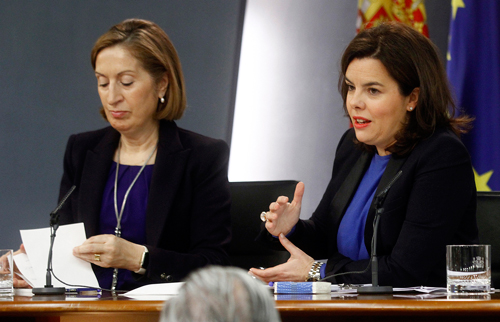The ranking has been elaborated by Burson-Marsteller within the framework of the study ‘World Leaders on Facebook’
Tamara Fariñas. 30/01/16
Although the objectives of diplomacy have not changed, the global context has and the Internet emergency has forced leaders to modify their way to promote the interests of their countries.
The firm Burson-Marsteller has just published, in this context, its study ‘World Leaders on Facebook’, in which it values their influence on social networks, and in which Spain does not even appear.
Although this is not a new concept, digital diplomacy has a significant importance at the moment. Journalist and professor of the Castile La Mancha University Juan Luis Manfredi describes it, on The challenge of digital diplomacy, published for Elcano Royal Institute, as “the use of the Web and social networks for the achievement of objectives in a country’s foreign policy”, so it adds to existing diplomacy traditional tools.
Twiplomacia, the tool comprising this study conducted by Burson-Marsteller, has elaborated a ranking assessing the influence of world leaders on Facebook. The President of the United States, Barack Obama, is at the top of the list, with 46,414,177 ‘likes’ —a number that by 26 January had increased by 46,717,105—. He is followed closely by the Indian Prime Minister, Narendra Modi, with more than 31 million followers.
[hr style=”single”]
Rajoy has not reached 200,000 followers and Sánchez has 114,000
[hr style=”single”]
The list, which includes the Turkish President, Recep Tayyip Erdogan, with almost 8 million followers, or the Mexican, Enrique Peña Nieto, with 4.5 million, has 50 positions, being the last one held by Sri Lanka’s President, Maithripala Sirisena, with more than 815,000 followers. However, Spain does not appear in this ranking. The president of the Government, Mariano Rajoy, has only 182,463 followers, a number that is quite below those of the countries included in this study.
Not even opposition leaders in Spain could make it to this ranking: the main one, the PSOE leader, Pedro Sánchez, has less than 115,000. Nevertheless, the two leaders of the youngest parties, Ciudadanos and Podemos, are much better positioned in this aspect. Albert Rivera beats the Spanish leader and reaches 231,178 ‘likes’. For his part, the leader of the purple party, Podemos, wins, by far, as regards the number of followers, since he has almost half a million.
Manfredi insists that, in this new context, the demographic challenge deserves a special mention: “45% of the world population is less than 24 years old. We will not be able to influence or transmit a message if we are not on social networks”. Precisely, both winners are the youngest, something that, combined with the fact that Spain has been left out of this ranking reflects that there is still much more left to be done as regards digital diplomacy.







